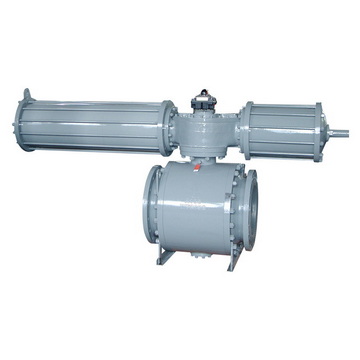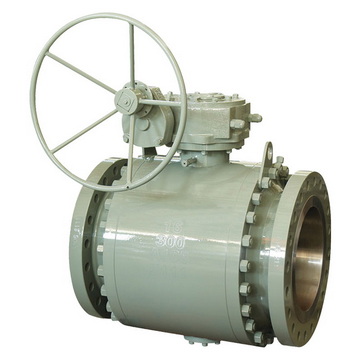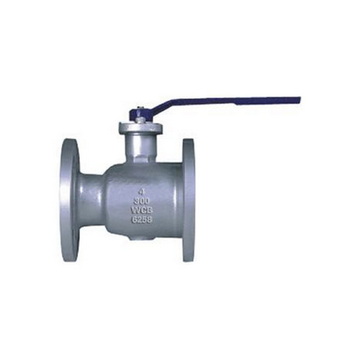Why Choose Metal Seated Ball Valves for Seawater Desalination Projects?
Content Menu
● Introduction to Metal Seated Ball Valves
● Key Features of Metal Seated Ball Valves
● Challenges in Seawater Desalination and Valve Requirements
● Advantages of Using Metal Seated Ball Valves in Seawater Desalination
>> Superior Corrosion Resistance
>> High Durability Against Abrasion
>> Reliable Performance Under Variable Temperatures and Pressures
>> Fire Safety and Environmental Compliance
>> Reduced Maintenance and Downtime
● Types of Metal Seated Ball Valves for Desalination Applications
>> Floating Metal Seated Ball Valves
>> Trunnion Mounted Metal Seated Ball Valves
>> Top Entry Metal Seated Ball Valves
● Installation and Maintenance Tips for Metal Seated Ball Valves
● Real-world Applications & Case Studies
>> Large-Scale RO Desalination Plant in the Middle East
>> Offshore Desalination on Drilling Platforms
● Frequently Asked Questions (FAQ)
>> 1. What makes metal seated ball valves better than soft seated valves for seawater desalination?
>> 2. Can metal seated ball valves be used in offshore desalination platforms?
>> 3. How often should metal seated ball valves be maintained in seawater applications?
>> 4. Are metal seated ball valves customizable?
>> 5. Do metal seated ball valves comply with environmental and safety standards?
Seawater desalination has become a cornerstone technology for addressing the growing global demand for fresh water. In these complex and often harsh environments, selecting the right valve technology is critical to ensuring system efficiency, longevity, and reliability. Among various valve options, Metal Seated Ball Valves have emerged as a preferred choice for seawater desalination projects worldwide.
This comprehensive article will explore why Metal Seated Ball Valves stand out in seawater desalination applications. We will delve into their unique features, key advantages, installation and maintenance tips, and real-world applications. The detailed discussion will help you understand their design and functionality better while emphasizing how they improve seawater desalination system performance.

Introduction to Metal Seated Ball Valves
Metal Seated Ball Valves are industrial valves designed with a metal-to-metal sealing interface, allowing them to withstand extreme pressure, temperature, and corrosive environments much better than soft-seated valves. Their robust construction, featuring stainless steel, hardened alloys, or special coatings, ensures durability in challenging media, including seawater and chemical additives used in desalination.
These valves are widely used in oil and gas, petrochemical, and increasingly in seawater desalination plants where the intake and processing of corrosive seawater require highly reliable valve solutions. The metal-to-metal seal mechanism ensures a strong, durable closure that maintains integrity even under abrasive or high-temperature conditions, making Metal Seated Ball Valves ideal for demanding desalination plant environments.
Key Features of Metal Seated Ball Valves
- Metal-to-Metal Seal: The core attribute of these valves is the metal seal interface, which can handle higher temperatures and works effectively with abrasive media, unlike softer polymer seals that degrade quickly in challenging environments.
- High Pressure and Temperature Resistance: These valves can operate reliably at pressures exceeding 1000 psi and temperatures as high as 600°C, covering a wide operational range needed in desalination.
- Corrosion Resistance: Made from materials such as stainless steel, Inconel, or coated with specialized alloys to protect against the highly corrosive seawater environment.
- Enhanced Durability: Metal seats resist damage from particulate matter suspended in seawater, substantially reducing valve wear and maintaining effective sealing.
- Fire-safe Design: Many metal seated ball valves meet stringent international fire safety standards, which is crucial for emergency scenarios involving chemical usage.
- Low Fugitive Emissions: Engineered for tight sealing, these valves reduce the leakage of potentially harmful fluids or gases, helping plants comply with environmental regulations.
Challenges in Seawater Desalination and Valve Requirements
Seawater desalination plants operate in aggressive environments with several technical challenges, including:
- Corrosive Media: Seawater contains salt and other minerals that can quickly corrode metals, particularly if valves are exposed to chlorides and other chemical agents.
- Abrasive Particles: Suspended solids in seawater, like sand and silt, can rapidly wear down valve seats and ball surfaces in traditional valves.
- High Pressure Operations: Reverse osmosis (RO) plants and thermal desalination systems often require valves that withstand sudden pressure surges, as well as sustained high operating pressures.
- Long Service Life: Since plant downtime can incur significant costs, valves are expected to have long operational life and minimal maintenance requirements.
- Safety Compliance: The pretreatment and cleaning processes in desalination often involve chemicals, necessitating valves capable of leak-tight sealing to prevent hazardous exposure.
The combination of these conditions means valves must be rugged, corrosion-proof, abrasion-resistant, and capable of consistent operation in harsh seawater treatment regimes.
Advantages of Using Metal Seated Ball Valves in Seawater Desalination
Superior Corrosion Resistance
Compared to soft-seated valves, metal seated ball valves do not suffer from the swelling, degradation, or chemical breakdown caused by exposure to seawater and desalination chemicals. Their materials and construction provide a much longer service life under aggressive corrosive conditions.
High Durability Against Abrasion
Metal sealing surfaces are far more resistant to erosive damage by suspended solids or grit found in untreated seawater. This resistance helps maintain sealing integrity and reduces valve replacement frequency.
Reliable Performance Under Variable Temperatures and Pressures
Metal seated ball valves maintain tight sealing and smooth operation regardless of fluctuating temperatures or pressures inherent in seawater desalination cycles, including during cleaning or emergency procedures where conditions may spike.
Fire Safety and Environmental Compliance
With most metal seated ball valves engineered to meet global fire-safe standards, plants using these valves improve overall operational safety. Additionally, their tight seals minimize fugitive emissions of harmful gases or fluids, helping meet stringent environmental requirements.
Reduced Maintenance and Downtime
The durability and resistance to wear result in fewer breakdowns or leaks, which means maintenance intervals are extended, and operational uptime can be maximized. For large desalination plants, this reliability directly reduces operational costs.

Types of Metal Seated Ball Valves for Desalination Applications
Floating Metal Seated Ball Valves
These valves feature a ball that is held in place by the compression of two seats. The metal seats slightly move toward the ball to maintain a tight seal. Floating metal seated ball valves are typically used for moderate pressure operations in desalination intake lines or brine discharge pipelines.
Trunnion Mounted Metal Seated Ball Valves
Providing extra support for the ball with trunnion pins, these valves are designed for high-pressure, large-diameter systems common in large-scale seawater desalination plants. They minimize operating torque and wear while providing reliable metal-to-metal sealing.
Top Entry Metal Seated Ball Valves
These valves allow for easier inspection and maintenance since the valve body's top can be removed without disconnecting the pipeline. This feature is extremely valuable for reducing downtime during scheduled maintenance in critical desalination plant systems.
Installation and Maintenance Tips for Metal Seated Ball Valves
- Correct Installation: Ensure valves are installed in accordance with manufacturer guidelines, paying particular attention to flow direction and torque specifications to prevent premature wear.
- Regular Inspection: Despite their durability, regular inspections every 6 to 12 months are recommended, including checking seat surfaces and seals for early signs of wear or corrosion.
- Proper Lubrication: Use lubricants compatible with seawater environments to maintain ball movement and seat flexibility without introducing contaminants.
- Functional Testing: Periodic operation testing confirms the valve's tight shut-off capacity and smooth operation, helping to catch potential issues before failure.
- Spare Parts Management: Keep critical spare parts like metal seats, stem seals, and ball units in inventory to enable rapid repairs and minimize downtime.
Following these tips ensures Metal Seated Ball Valves deliver long-term, trouble-free service in seawater desalination plants.
Real-world Applications & Case Studies
Large-Scale RO Desalination Plant in the Middle East
One large reverse osmosis desalination facility in the Middle East faced issues with frequent valve failures and high maintenance costs when using soft-seated valves. After switching to metal seated ball valves, the plant saw a 40% reduction in valve-related maintenance expenses over three years and nearly eliminated unplanned valve downtime. The metal seats handled the brine's corrosive nature and suspended solids without degradation, keeping the system running smoothly.
Offshore Desalination on Drilling Platforms
Oil and gas offshore drilling platforms often use seawater desalination for crew and process water. Metal seated trunnion mounted ball valves installed on these platforms performed reliably in the harsh marine atmosphere, salt spray, and variable temperatures. Their fire-safe design also contributed to improved operational safety, a critical factor for offshore facilities.
Conclusion
Choosing Metal Seated Ball Valves for seawater desalination projects ensures unmatched durability, corrosion resistance, and operational safety — crucial factors in successfully managing challenging seawater environments. Their robust construction minimizes maintenance, reduces downtime, and guarantees a longer service life, making them the ideal solution for modern seawater desalination plants aiming for high reliability and lower operational costs.
If you want to enhance your seawater desalination project's efficiency and reliability with high-quality metal seated ball valves, contact us today! Our factory specializes in bespoke design, development, and manufacturing of top-grade floating, trunnion, and top entry metal seated ball valves tailored to your application. We provide OEM services for international brands, wholesalers, and manufacturers, ensuring you get products that meet your exact specifications and project needs.

Frequently Asked Questions (FAQ)
1. What makes metal seated ball valves better than soft seated valves for seawater desalination?
Metal seats resist corrosion, abrasion, and high temperatures better than soft seats, which can degrade quickly in seawater and chemical treatment media. This results in longer valve lifespan and greater reliability.
2. Can metal seated ball valves be used in offshore desalination platforms?
Yes. Their robust design and corrosion resistance make metal seated ball valves ideal for harsh offshore environments, including high salt spray, humidity, and variable temperatures found on drilling platforms.
3. How often should metal seated ball valves be maintained in seawater applications?
Although highly durable, it is recommended to perform inspections and maintenance every 6 to 12 months, or more frequently depending on the process conditions and valve criticality.
4. Are metal seated ball valves customizable?
Absolutely. We offer OEM services allowing customization of materials, sizes, pressure ratings, and sealing configurations to meet your specific project requirements.
5. Do metal seated ball valves comply with environmental and safety standards?
Yes. Most metal seated ball valves are designed to meet international fire safety and emission standards. These valves ensure secure sealing to prevent leaks and reduce environmental contamination risks.
Hot tags: Metal Seated Ball Valves For Seawater Desalination, Corrosion Resistant Ball Valves For Desalination Plants, Benefits Of Metal Seated Ball Valves In Seawater Systems, High Durability Ball Valves For Desalination Projects, Metal Seated Ball Valves For Saltwater Applications, Reliable Ball Valves For Seawater Treatment Plants, Long Lifespan Metal Seated Ball Valves For Desalination, Best Metal Seated Ball Valves For Seawater Industry, Metal Seated Ball Valve Manufacturers For Desalination, Why Choose Metal Seated Ball Valves For Seawater Projects